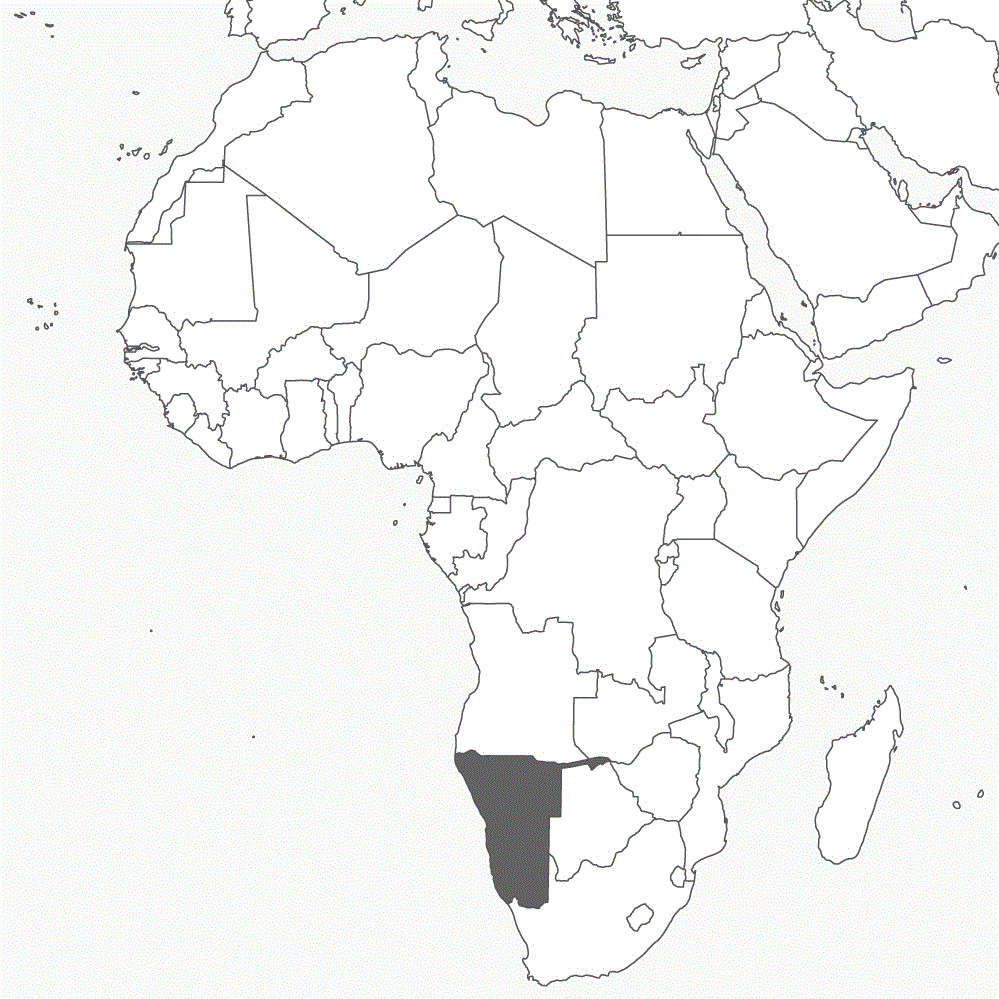"Naked Racism"
WINDHOEK/BERLIN (Own report) - A Namibian parliamentary initiative for reparations has been sharply rejected by German parliamentarians. The National Assembly in the Namibian capital, Windhoek, is currently discussing a resolution of the Herero population group, that calls for government-level negotiations of their demands for reparations for the German genocide perpetrated against their people. As the leader of a German parliamentary delegation, that was in Namibia last week for discussions, explains, the Herero should temper their demands and accept Germany's development aide payments, to its former colony, as a "peace dividend". The question of land reform was also the focus of virulent debates between German parliamentarians and members of the Namibian government. Berlin is insisting that Windhoek renounce on an acceleration of the reallocation of large landed estates, thereby protecting the descendants of German colonialists. German foreign policy measures are, in the meantime, encountering hefty criticism in this Southern African country. The German government's refusal to pay reparations is an "expression of naked racism toward blacks, in general, and the Hereros in particular", declared a representative of the African victims of this genocide.
Hartwig Fischer, who is a member of the parliamentary group of the ruling CDU Party in the German "Bundestag," led an official parliamentary delegation on its visit to Namibia. As he confirmed after the visit, the German government continues to reject payments of reparations to citizens of this Southern African state. Since its former colony won its independence (1990), the German government has been insisting that Windhoek content itself with development aide payments and renounce on reparation demands for the German genocide in 1904 on the Herero, Nama and Damara peoples. At that time, German troops of the imperial colony shot tens of thousands or drove them into the desert to die of thirst.[1]
Peace Dividend
Among the topics of discussion between the Bundestag's delegation and the Namibian president last week, was a new initiative taken by the Herero Chief, Kuaima Riruako. Already years ago, Riruako had filed a lawsuit in the United States to achieve reparation payments for the genocide that Germany's legal predecessor had committed. In September he initiated a supplementary parliamentary initiative. Accordingly the parliamentarians in Windhoek are called upon "as elected representatives of the people of our country (...), to convince the German government to resolve the question of reparations, in a direct dialogue."[2] The leader of the Bundestag's delegation, Hartwig Fischer (CDU) opposes bilateral, government-level reparation negotiations. He "hopes" that the Hereros will consider the German development aide payments "as a peace dividend and that the moderate forces among them will prevail."[3] Within the CDU/CSU party group of the Bundestag, Fischer is the representative for questions of human rights in Africa.
Maneuver and Manipulations
The German refusal has already created dissention in Windhoek. Parliamentarians of the opposition are backing the Herero's demand and assure Riruako of their unconditional support. Thus not only is the Namibian government to receive the demand to enter negotiations with the German government, but the Namibian parliament is to also explicitly request the German Bundestag to approve reparation payments for the genocide. Observers note that the incumbent government, which is under pressure from direct German lobbying, takes a more reserved position. "Our government must (...) develop its own, independent position on this question and free itself from the German maneuvers and manipulations," was the advice contained in a declaration of the Ovaherero Genocide Committee, back in May, which is broadly supported by the Hereros.[4] Otherwise one would have to see the Namibian government leadership "as accomplices in the German government's devious tricks." German foreign policy attempts to have the payments of so-called development aide funds considered as compensation. These intergovernmental agreements are meant to render obsolete the question of reparations for genocide. Since its independence, Namibia has received promises for development aide worth approximately 500 million Euros.
Reallocation
Unlike reparations, the so-called development aide payments are earmarked allocations and allow Berlin to influence Namibian policies. Significant portions of the German funds are earmarked for land reform, which enjoys a constitutional status in Namibia. The reallocation of the large-propertied estates - dating back to colonial times - is hardly progressing. Therefore those, in Namibia and also elsewhere in Southern Africa, who are demanding accelerated land reform measures, along the lines of the Zimbabwean model, are gaining in popularity. In 2000, the Zimbabwean government initiated, a more radical land reform. Today, despite substantial western objections,[5] most of the approximately 4,000 former latifundia held by the white minority, have been reallocated. The Namibian Vice-Minister of Lands, Resettlement and Rehabilitation had visited Zimbabwe in May and found the measures used there "recommendable."[6] A virulent debate occurred in a meeting between himself and the Bundestag's delegation last week.
Unpunished
The German attempt to repel paying reparations for the crime of genocide in Namibia, is part of the foreign ministry's overall strategy. All massacres committed in its colonial and world war history have been declared as falling under the statute of limitations and therefore non-negotiable. German foreign policy assumes identical positions toward lawsuits brought by Italian and Greek victims associations. German courts support the official line.[7] The crimes of genocide remain unpunished.
[1] see also Jürgen Zimmerer, Joachim Zeller (Hg.): Völkermord in Deutsch-Südwestafrika
[2] Parlament um Hilfe ersucht. Riruako bittet Gesetzgeber um Unterstützung für seine Reparations-Initiative; Allgemeine Zeitung Namibia 20.09.2006
[3] "Wir werden gute Partner bleiben". Delegation des deutschen Bundestags besucht Namibia; Allgemeine Zeitung Namibia 16.10.2006
[4] Media Release; Ovaherero Genocide Committee 14.05.2006
[5] see also Der nächste, bitte!, Alles oder nichts and Ein krimineller Plan
[6] see also Future operations
[7] see also German Price, Irreführung, Vergessene Sklaven and "Menschliche Schwäche"
